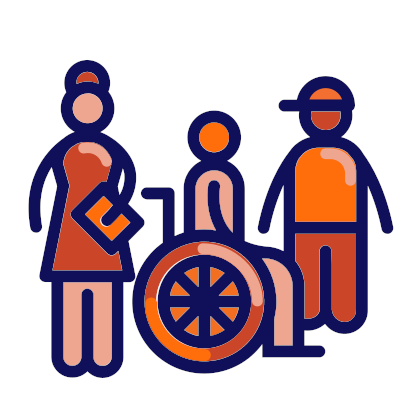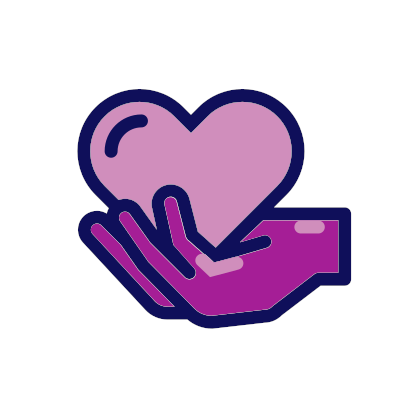Addressing controversial issues

However, being able to discuss sensitive and controversial issues in a respectful way is a vital skill in a democratic culture.
Schools must be places where students feel safe to engage in debates with people who have different opinions. Through the careful management of discussions on controversial issues, schools can promote freedom of expression, as well as inclusion, tolerance, and human rights and prevent, or counter, the use of hate speech by students.
To achieve this, a school action plan on managing controversial issues – which provides staff training – should be adopted as a priority.
Facts & Figures
71% of teachers and school leaders surveyed agreed that it is very important that all students in their school express their views openly, even when their views might be controversial.[1]
In response to the question, ‘How valuable is the study of the Holocaust for primary children?’ 88% of teachers viewed Holocaust teaching to be either ‘worthwhile’ or ‘very valuable’ to the primary pupil, although only 48% had actually taught it.[2]
What are controversial issues?
Controversial issues are issues which arouse strong feelings and divide communities.
Issues like these can arise anywhere at any time. They vary from the local to the global – from minarets to climate change. They also vary from place to place, e.g., gay marriage is relatively uncontentious in some countries, but highly controversial in others. Some are long-standing controversies, e.g., the ‘Troubles’ in Northern Ireland, the Israel-Palestine conflict and the ‘Kurdish issue’ in Turkey; while others are more recent, e.g., refugees, violent extremism and transgender issues.
What all these issues have in common is that they are complex, not easily settled by appeal to evidence alone and highly emotive – so much so that people often have difficulty discussing them rationally.
Why is it important to address controversial issues at school?
While it might be tempting for schools to try to shy away from issues like these, this is neither beneficial nor practical.
Discussing controversial issues helps students with different backgrounds and lifestyles to learn to live and work together peacefully and respectfully. It encourages them to listen to each other and talk through their differences sensitively. It also challenges them to think critically about their own beliefs and values and gives them confidence and skills to express these publicly.
Talking through difficult issues together develops a number of important democratic competences, e.g., openness to other cultures and beliefs, analytical and critical thinking skills, flexibility and adaptability, and tolerance of ambiguity - all of which lie at the heart of the Council of Europe Reference Framework of Competences for Democratic Culture.
Handled well, it breaks down barriers and helps to defuse social tension between opposing groups, both in school and the wider community.
Exploring controversial issues has educational as well as personal and social benefits. Issues like these help to define some of the major social, political, economic and moral fault-lines in contemporary life and underpin academic learning in many school subjects.
The strongest argument for addressing controversial issues explicitly, however, is that, in practice, they simply cannot be avoided. If teachers do not raise these issues, their students will.
Through training in the teaching of controversial issues, I have found the courage to discuss openly with my students issues I thought I would never be able to do, e.g., about sexual abuse and the porn industry.” Teacher, Iceland
What are the challenges?
The biggest challenge is creating a school ethos in which students genuinely feel they can speak openly about their concerns without fear of vilification or ridicule.
Creating such an ethos requires a whole-school approach. It includes among other things:
- teachers having the confidence and skills to handle discussion of difficult issues in the classroom, e.g., knowing how to deal with their own prejudices and biases, protect vulnerable individuals and marginalised groups, present issues even-handedly, cope with a lack of expert knowledge, and handle spontaneous or unexpected questions and remarks constructively;
- school leaders encouraging their staff to take on issues which are controversial and maintaining a consistency of approach across the school, e.g., by providing leadership, professional development, opportunities for team teaching, guidance and support, and risk management;
- parents and local communities feeling assured that the school is on their side, e.g., being confident the school will not misrepresent or try to undermine their views or culture.
How can schools get active?
A good way for schools to begin is by:
- identifying where controversial issues already feature in the school curriculum and discussing how these are currently handled, e.g., evolution, climate change or animal testing in Science;
- considering new opportunities for introducing controversial issues into other school subjects and how they might be incorporated into teaching, e.g., the use and abuse of social statistics in Maths;
- developing ground rules for classroom discussion which guarantee everyone a voice to express their opinion and encourage respect for whoever wishes to speak;
- creating a small support group to help teachers develop techniques for managing discussion of difficult issues, e.g., how to ‘de-personalise’ an issue by using a story or historical parallel, or helping students to consider alternative perspectives by putting them in other people’s shoes;
- liaising with students and parents to ensure specific issues are handled fairly and with appropriate methods;
- introducing more opportunities for discussion in school life and decision-making generally, e.g., in parents’ meetings, staff meetings and pupil parliaments.
[1] ‘Free to speak, Safe to learn – Democratic schools for all’ Survey, First Trends, 2018
[2] Cowan & Maitles, ‘Feature or Footnote? Teachers’ attitudes towards the teaching of the Holocaust in primary schools in Scotland’.
 Resources on Addressing Controversial Issues
Resources on Addressing Controversial Issues
Multimedia
- Crossroads of European Histories - Multiple Outlooks on Five Key Moments in the History of Europe (CD + Book) (2009)
- Education for Democracy and Human Rights in 10 Steps (2017)
- How can schools support students to be active citizens?
- Living in harmony together: the role of schools? (2014)
- Re-Thinking Education Policy For The 21st Century (2014) (Jón Torfi Jónasson)
- Shared histories for a Europe without dividing lines (2014)
- Through the Wild Web Woods – An online Internet safety game for children - Teachers guide (2013)
- What is the Charter on citizenship and human rights education?
Official texts
- Comparative study on blocking, filtering and take-down of illegal internet content (2017)
- Education for change - Change for education
- Eradicating violence against children - Council of Europe actions (2008)
- ETINED - Volume 1: 7th Session of the Prague Forum (2016)
- Freedom(s) - Learning activities for secondary schools on the case law of the European Court of Human Rights (2015)
- Global Education Guidelines. A Handbook for Educators to Understand and implement Global Education (2012)
- Guidelines for educators on combating intolerance and discrimination against Muslims – Addressing Islamophobia through Education (2011)
- Human Rights and Democracy Start with Us - Charter for All: Brochure for children, Guide for educators and a Poster (2014)
- Report of the Intergovernmental Policy Forum: The right of learners to quality and equity in education – the role of language and intercultural skills (2010)
- The Lisbon Recognition Convention at 15: making faire recognition a reality (Council of Europe higher education series No. 19) (2014)
- Thematic factsheets highlighting the European Court of Human Rights relevant case-law on issues relating to media freedom
- What is the Charter on citizenship and human rights education?
Policy documents
- Addressing violence in schools (2016)
- Bullying: Perspectives, Practices and Insights (2017)
- Comparative study on blocking, filtering and take-down of illegal internet content (2017)
- Compasito - manual on human rights education for children (2000)
- Compass - manual for human rights education with young people online resource (2002)
- Competences for democratic culture - Living together as equals in culturally diverse democratic societies (2016) A conceptual model of competences
- Curriculum Development and Review for Democratic Citizenship and Human Rights Education (2015)
- Developing attitudes to recognition: substantial differences in an age of globalisation (Council of Europe higher education series No. 13) (2010)
- Digital citizenship education - Volume 1: Overview and new perspective. Supporting children and young people to participate safely, effectively, critically and responsibly in a world filled with social media and digital technologies. (2017)
- Digital Citizenship Education (DCE) - 10 Domains leaflet
- Education for change - Change for education
- Education for Democracy and Human Rights in 10 Steps (2017)
- Education for democratic citizenship: policies and regulatory frameworks (2003)
- Equal opportunities for all children: Non-discrimination of lesbian, gay, bisexual, transgender and intersex (LGBTI) children and young people (2016)
- Eradicating violence against children - Council of Europe actions (2008)
- ETINED - Volume 1: 7th Session of the Prague Forum (2016)
- ETINED - Volume 2: Ethical principles (2016)
- ETINED - Volume 4: Codes of conduct for teachers in Europe: A background study (2017)
- ETINED - Volume 5: South-East European Project on Policies for Academic Integrity (2018)
- Freedom(s) - Learning activities for secondary schools on the case law of the European Court of Human Rights (2015)
- From linguistic diversity to Plurilingual education: Guide for the development of language education policies in Europe (2007)
- Gender Matters. A manual on addressing gender-based violence affecting young people 2007 (reprint 2013)
- Global Education Guidelines. A Handbook for Educators to Understand and implement Global Education (2012)
- Guide for the development and implementation of curricula for Plurilingual and intercultural education (2016)
- Guidelines for educators on combating intolerance and discrimination against Muslims – Addressing Islamophobia through Education (2011)
- Higher Education and Democratic Culture: Citizenship, Human Rights and Civic Responsibility (Council of Europe higher education series No. 8) (2008)
- History education in Europe. Ten years of co-operation between the Russian Federation and the Council of Europe (2006)
- Human Rights and Democracy in Action Pilot Projects Scheme (2013-2014)
- Intercultural dialogue on Campus (Council of Europe higher education series No. 11) (2009)
- Language support for adult refugees: a Council of Europe toolkit (2017)
- Learning to live together. Council of Europe report on the state of citizenship and human rights education in Europe (2017)
- Living with Controversy - Teaching Controversial Issues Through Education for Democratic Citizenship and Human Rights (EDC/HRE) (2016)
- Managing controversy (2017). A self-reflection tool for school leaders and senior managers
- Multicultural Societies, Pluricultural People and the Project of Intercultural Education (2009)
- Open minds, free minds - No easy prey for counterfeit medicines and similarly dangerous medicines - Psycho-pedagogical concept guide for teachers (2015)
- Plurilingual and intercultural competence (2009)
- Plurilingual and intercultural education as a project (2009)
- Plurilingual and intercultural education as a right (2009)
- Quality history education in the 21st century. Principles and guidelines (2018)
- Re-Thinking Education Policy For The 21st Century (2014) (Jón Torfi Jónasson)
- Reference Framework of Competences for Democratic Culture Volume 1: Context, concepts and model (2018)
- Reference Framework of Competences for Democratic Culture Volume 2: Descriptors (2018)
- Reference Framework of Competences for Democratic Culture Volume 3: Guidance for implementation (2018)
- Report of the Intergovernmental Policy Forum: The right of learners to quality and equity in education – the role of language and intercultural skills (2010)
- Speaking across borders: the role of higher education in furthering intercultural dialogue (Council of Europe higher education series No. 16) (2010)
- Specifying languages’ contribution to intercultural education. Lessons learned from the CEFR (2013)
- Strategic support for decision makers - Policy tool for education for democratic citizenship and human rights (2010)
- Students as suspects? - The challenges of counter-radicalisation policies in education in the Council of Europe member states (2018)
- The linguistic integration of adult migrants: from one country to another, from one language to another (2014)
- The Lisbon Recognition Convention at 15: making faire recognition a reality (Council of Europe higher education series No. 19) (2014)
- The public responsibility for higher education and research. (Council of Europe higher education series No. 2) (2005)
- The university as res publica - Higher education governance, student participation and the university as a site of citizenship (Council of Europe higher education series No. 1) (2004)
- Thematic factsheets highlighting the European Court of Human Rights relevant case-law on issues relating to media freedom
- Volume 3 - Ethical behaviour of all actors in education
- What is citizenship and human rights education? (2015) Leaflet
 Related schools projects
Related schools projects
Address: Annikanpolku 9, 20610 Turku
Country: Finland
Project: Dealing with controversial issues
 Working language during the project:
Working language during the project:
- Finnish and English
 Themes of the Council of Europe campaign “FREE to SPEAK, SAFE to LEARN - Democratic Schools for All” covered:
Themes of the Council of Europe campaign “FREE to SPEAK, SAFE to LEARN - Democratic Schools for All” covered:
- Addressing controversial issues
- Preventing violence and bullying
- Tackling discrimination
 Competences from the Reference Framework of Competences for Democratic Culture (CDC) addressed and where / how they were integrated:
Competences from the Reference Framework of Competences for Democratic Culture (CDC) addressed and where / how they were integrated:
- Openness to cultural otherness and to other beliefs, world views and practices
Turku University Τeacher Training School is a multicultural school, situated in an area with a large number of immigrants (Varissuo): more than 65% of our pupils have Finnish as their second language. Pupils have approximately 50 different home languages and various cultural, religious and ethnic backgrounds. Equality, human rights, language awareness in education, intercultural skills and cooperation skills are at the core of our education. We also educate teachers to be part of a section of Turku University Faculty of Pedagogics.
We have developed regular practices to develop a learning environment that would foster and promote these core skills.
First of all, we have an annual Controversial Issues theme day organised by our teachers and students. Classes work in workshops on topics which include: different cultural practices, beliefs and values. The following are examples from last April’s workshop: Science vs. God / Sexual minorities / linguistic rights / Animal rights / Expression of feelings / Identity / Human rights / etc. Themes are suggested by pupils, and student teachers take up the themes that best match our curriculum. All 130 student teachers became familiar with methods of handling controversial issues in classrooms in several afternoon sessions. Special focus in workshops and in trainings fell on listening, discussion and dialogue skills – and this year our school community’s main theme is dialogue.
Among 8th-graders we organise workshops against racist attitudes regularly.
Teachers cooperate on lessons about various religions and other subjects (Islam, Lutheranism, ethics) in order to maintain and foster peaceful discussion of controversial issues.
Our policy is also language awareness, which includes lessons in pupil’s home languages. By authorising and even encouraging pupils to use their home language for learning we try to promote an atmosphere favourable for learning and various identities. All teachers have been trained to use methods and means of learning that help pupils of different backgrounds and sometimes with only basic language skills to feel included in the learning process and not separated from the school community. We do not have separate groups for language beginners.
- Valuing democracy, justice, fairness, equality and the rule of law
Classes suggest workshop topics that are important to them; topics are handled in versatile methods according to the class needs; all voices are heard in workshops; linguistic, sexual, ethnic, religious and other minority issues are a focus of topics.
We co-operate actively in our neighbourhood community: guardians, authorities and ethnic organisations. We deal with any conflicts together with guardians and with other local authorities, e.g. youth workers and local police. The attitude is to tackle any problem at once before it becomes an issue and to create a supportive network for our pupils – we all work with same children. For example, we organise weekly youth house breaks for different groups (girls, 7th graders, and 8th and 9th graders), and pupils can influence which games or other activities can be undertaken in the youth house, which is located just next to our school.
We invest in good relations with guardians: we have regular multicultural and multilanguage parents’ evenings in our school, and our teachers from, for example, Somalia, Kosovo and Kurdistan are present in lessons and meetings with guardians. This has enabled us to build mutual trust so that girls, for example, are trusted to participate in school events without questioning.
- Knowledge and critical understanding of the world: politics, law, human rights, culture, cultures, religions, history, media, economies, environment, sustainability
In our curriculum there are official plans against bullying, violence and for equality. The equality plan is checked regularly by a survey carried out by pupils. Media criticism and skills are crucial for critical thinking skills and they are used in workshops and in lessons throughout all subjects. It is highly recommended that Friday morning sessions in the classrooms are dedicated to world news and critical discussion of world news. At the current moment, we are in the middle of media criticism week.
There is an active student council in our school both at the primary level and for grades 7-9. The student council organises, for example, activities in environment protection, on Unicef, interview sessions of principals. The student council takes part in recruitment e.g. new special education teachers. And they asked very good questions!
 Target group age range:
Target group age range:
- 11 - 15
 Level of education:
Level of education:
- Lower secondary education
Short description of the project:
We arranged an annual theme day for controversial issues for lower secondary pupils. Topics are suggested by pupils, who also work in their class groups during the day. We made a washing line – an exercise for choosing the workshop topics: Pupils write (anonymously) three notes and hang them on a washing line: one note for a “cold” topic (a controversial topic that is perfectly all right to talk about in the school community), one note for a “lukewarm” topic (a controversial topic that might be a bit difficult to talk about in the school community) and one note for a “hot”” topic (a controversial topic that is very difficult to talk about in the school community). By this exercise we hope to give an opportunity to students to express themselves on those topics which are difficult to discuss in pupils own cultural environments. Thus, we get many topics that are important to pupils. Our student teachers choose one topic for each group and prepare a theme day for each group about this topic. Each group has to handle the topic from at least two different angles or subjects. Examples of last years’ topics are: human rights, sexual minorities, gender equality, animal rights and zoos, expression of feelings among others. Our national curriculum wants the topics to be relevant and important to pupils in multidisciplinary learning modules.
The theme day consists of learning facts and information, discussions, expression of feelings and attitudes and listening to others. Most of the methods are active, involving pupils, e.g. drama. The activities are planned by student teachers, with a supervisory teacher for giving guidance. The teachers and student teachers are familiar with methods for dealing with controversial issues. Teachers are especially trained to guide the learning process for student teachers and pupils. A special focus is placed on teaching listening skills.
The experiences from last April were encouraging. The atmosphere was calm and relaxed; no quarrels or difficult situations emerged. A survey among teachers showed that the theme day is worth organizing annually, so we will continue with it next April, with minor improvements.
 Aims/objectives
Aims/objectives
- Give a channel to express different values, opinions and attitudes;
- Learn to listen to others and accept that there are different ways of seeing the world;
- Learn about human rights and equality;
- Teach our teacher Students to deal with controversial issues in a multicultural community.
 Expected results/outcomes
Expected results/outcomes
An annual theme day of controversial issues in April
 Changes
Changes
- In the school community: less violence, arguments and discrimination based on ethnic, racial, sexual, religious differences;
- Among teachers and student teachers: more self-confidence and stronger democracy in classes when dealing with controversial issues.
 Challenges you faced
Challenges you faced
Multicultural school environment with pupils from 50 different language areas.
 Time-frame of the project:
Time-frame of the project:
Training teachers in January 2020, Training student teachers in spring 2020, annual theme day in April (we already did this last year).
 Council of Europe materials on citizenship and human rights education used while preparing or implementing your practice:
Council of Europe materials on citizenship and human rights education used while preparing or implementing your practice:
- Managing controversy
- Teaching controversial issues-training pack







